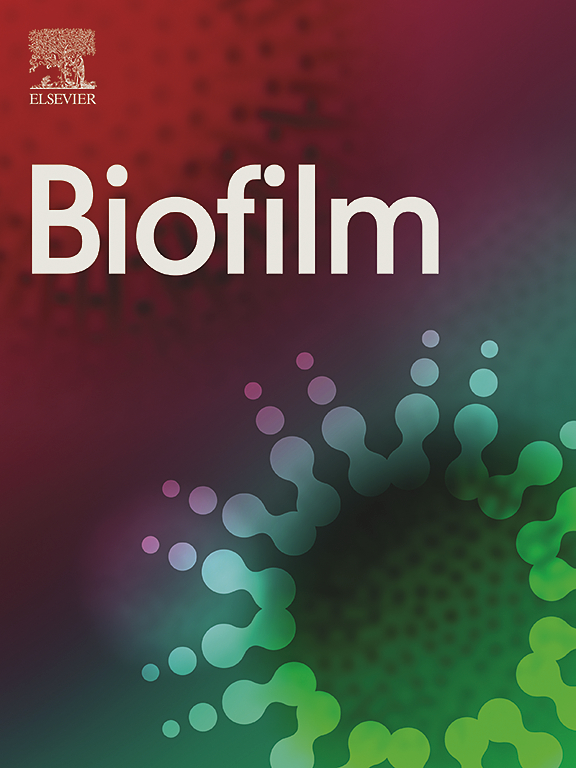新型口服化合物 Z526 通过干预 NF-κB 信号传导和氧化应激减轻癌症相关恶病质
IF 6.9
2区 医学
Q1 BIOCHEMISTRY & MOLECULAR BIOLOGY
引用次数: 0
摘要
癌症相关恶病质(CAC)是一种以肌肉和脂肪减少为主要特征的严重代谢紊乱综合征,占癌症相关死亡人数的三分之一。目前还没有能够完全逆转 CAC 的有效治疗方法。NF-κB信号传导和氧化应激在CAC的肌肉萎缩和脂肪减少中起着至关重要的作用。在这里,我们的研究表明,我们开发的口服化合物 Z526 通过抑制 NF-κB 信号传导和改善氧化应激表现出了强大的抗 CAC 疗效。Z526可减轻C2C12肌管萎缩和由多种恶性肿瘤细胞条件培养基或促恶性肿瘤炎症细胞因子诱导的3T3-L1脂肪细胞脂肪分解。Z526可减轻C26或LLC肿瘤小鼠的恶病质症状。Z526 治疗可减少体重下降,但不会影响肿瘤生长,并可改善肌肉萎缩、脂肪减少和握力受损。此外,Z526 治疗后,C26 肿瘤小鼠血清 TNF-α 和 IL-6 水平降低。值得注意的是,Z526 能明显延长 LLC 肿瘤小鼠的生存期。Z526 可逆转肌肉和脂肪组织中激活的 NF-κB 信号和氧化应激。此外,Z526 还表现出良好的临床前安全性。因此,口服 Z526 具有强效的抗 CAC 活性、对不同致病机制(NF-κB 信号转导和氧化应激)的多重干预作用以及良好的临床前安全性,有望开发成一种新型的、有益的 CAC 治疗方案。本文章由计算机程序翻译,如有差异,请以英文原文为准。
Novel oral compound Z526 mitigates cancer-associated cachexia via intervening NF-κB signaling and oxidative stress
Cancer-associated cachexia (CAC) is a severe metabolic disorder syndrome mainly characterized by muscle and fat loss, which accounts for one-third of cancer-related deaths. No effective therapeutic approach that could fully reverse CAC is available. NF-κB signaling and oxidative stress play vital roles in both muscle atrophy and fat loss in CAC. Here, we showed that our developed oral compound Z526 exhibited potent anti-CAC efficacy by inhibiting NF-κB signaling and ameliorating oxidative stress. , Z526 alleviated C2C12 myotube atrophy and 3T3-L1 adipocyte lipolysis induced by conditioned mediums of multiple cachectic tumor cells or pro-cachectic inflammatory cytokines. , Z526 attenuated the cachectic symptoms of C26 or LLC tumor-bearing mice. Z526 treatment reduced weight loss without impacting tumor growth and improved muscle atrophy, fat loss, and impaired grip force. Besides, serum TNF-α and IL-6 levels were reduced after Z526 treatment in C26 tumor-bearing mice. Of note, Z526 significantly prolonged the survival of LLC tumor-bearing mice. Activated NF-κB signaling and oxidative stress in cachectic muscle and fat tissues were reversed by Z526. Furthermore, Z526 exhibited a promising preclinical safety profile. Thus, oral Z526, which exhibited potent anti-CAC activities and , multiple interventions in diverse pathogenic mechanisms (NF-κB signaling and oxidative stress), and a favorable preclinical safety profile, holds the promise to be developed into a novel and beneficial therapeutic option for CAC.
求助全文
通过发布文献求助,成功后即可免费获取论文全文。
去求助
来源期刊

Genes & Diseases
Multiple-
CiteScore
7.30
自引率
0.00%
发文量
347
审稿时长
49 days
期刊介绍:
Genes & Diseases is an international journal for molecular and translational medicine. The journal primarily focuses on publishing investigations on the molecular bases and experimental therapeutics of human diseases. Publication formats include full length research article, review article, short communication, correspondence, perspectives, commentary, views on news, and research watch.
Aims and Scopes
Genes & Diseases publishes rigorously peer-reviewed and high quality original articles and authoritative reviews that focus on the molecular bases of human diseases. Emphasis will be placed on hypothesis-driven, mechanistic studies relevant to pathogenesis and/or experimental therapeutics of human diseases. The journal has worldwide authorship, and a broad scope in basic and translational biomedical research of molecular biology, molecular genetics, and cell biology, including but not limited to cell proliferation and apoptosis, signal transduction, stem cell biology, developmental biology, gene regulation and epigenetics, cancer biology, immunity and infection, neuroscience, disease-specific animal models, gene and cell-based therapies, and regenerative medicine.
 求助内容:
求助内容: 应助结果提醒方式:
应助结果提醒方式:


